Dogue de Bordeaux
Dogue de Bordeaux is a loyal, affectionate, and very courageous dog breed from France. This breed was used in many different work roles – from cart pulling to guarding flocks. Other names that are common to this dog are Bordeaux Mastiff, Franch Mastiff, and Bordeauxdog. This dog is mostly known for its massive head, muscular body, and fearless temperament.
The American public first noticed this dog after the release of the Tom Hanks movie – Turner and Hooch in 1989. After that moment, they gain massive popularity, and until this day, they retained that popularity.
French Mastiff is a devoted family dog who can be sweet and well-behaved but also, in some cases, stubborn. Before you start searching for Dogue de Bordeaux breeders, be sure to learn everything there is about this dog breed so you can be sure that you will not make a mistake if you decide to purchase this dog.
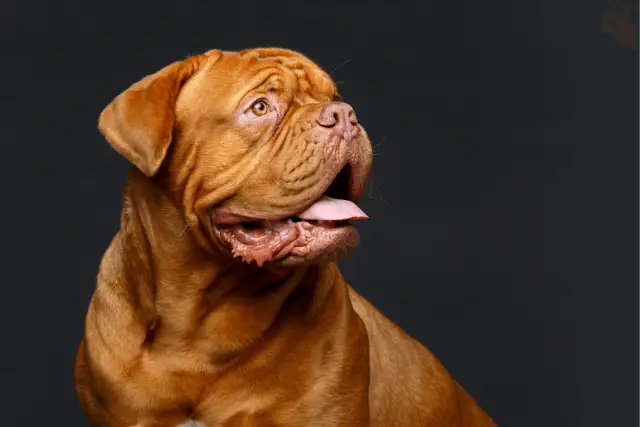
They are not suited for an owner who will not be at home most of the day. You must devote your time and energy to training and socialization if you want to end up with a well-behaved dog. If you do not work with your dog, he will develop behavior problems, and you will get into a lot of trouble because of him. With the right approach, you will get a loyal friend with whom you will enjoy every minute of the day.

Height:
23–27 in (58–68 cm)

Weight:
100-144 lb (45-65 kg)

Origin:
France

Life Expectancy:
5-8 years
Dog Breed Characteristics
Dogue de Bordeaux is a powerful and muscular dog with a harmonious general outline. Their head is massive, broad, and rather short. They are very attached to a master and very gifted for guarding with great courage and without aggressiveness. Male dogs will normally have a dominant character.
French Mastiff -coat
This dog breed has a fine, short, and soft coat. Their coat is easy to maintain, and you can brush it with a rubber brush. They come in all shades of fawn – from mahogany to isabella. Standard says that good pigmentation is desirable. They will shed year-round, and during shedding season, you can expect your dog to shed heavily. During that time, you will have to brush him more often.
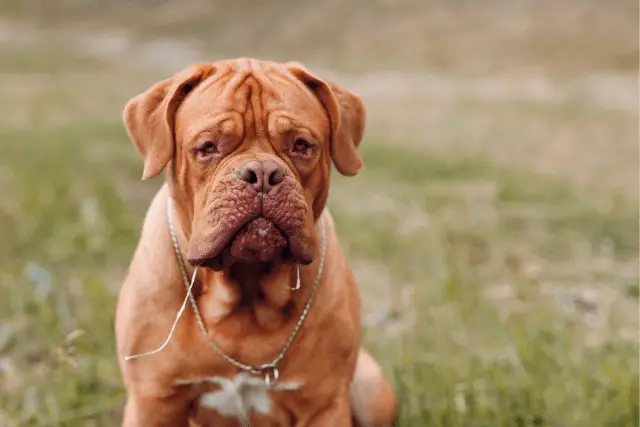
They don't require frequent baths, but you must be very careful because of the wrinkles on their face. Their wrinkles require special attention because moisture can easily get trapped and cause irritations and infections. Their wrinkles should be checked and cleaned regularly to secure that these dogs don't become infected.
Because these dogs drool a lot, it is a good idea to always carry a towel with you everywhere you go.
The rest is basic care – trim his nails when needed, brush his teeth to secure good and healthy gum, and prevent gum diseases. Regularly check their ears for any sign of redness or a bad odor that can indicate an infection.
Exercise and training
Dogue de Bordeaux dogs need a regular amount of exercise for them to be happy and healthy. You must be very careful not to over-exercise young puppies because their joints and bones are still developing, and by over-exercising them, you could hurt them. When training them, you need to be firm and consistent but never rough because this is a sensitive dog breed. These dogs are great competitors in agility and weight pulling.
FUN FACT: French Mastiffs love swimming.
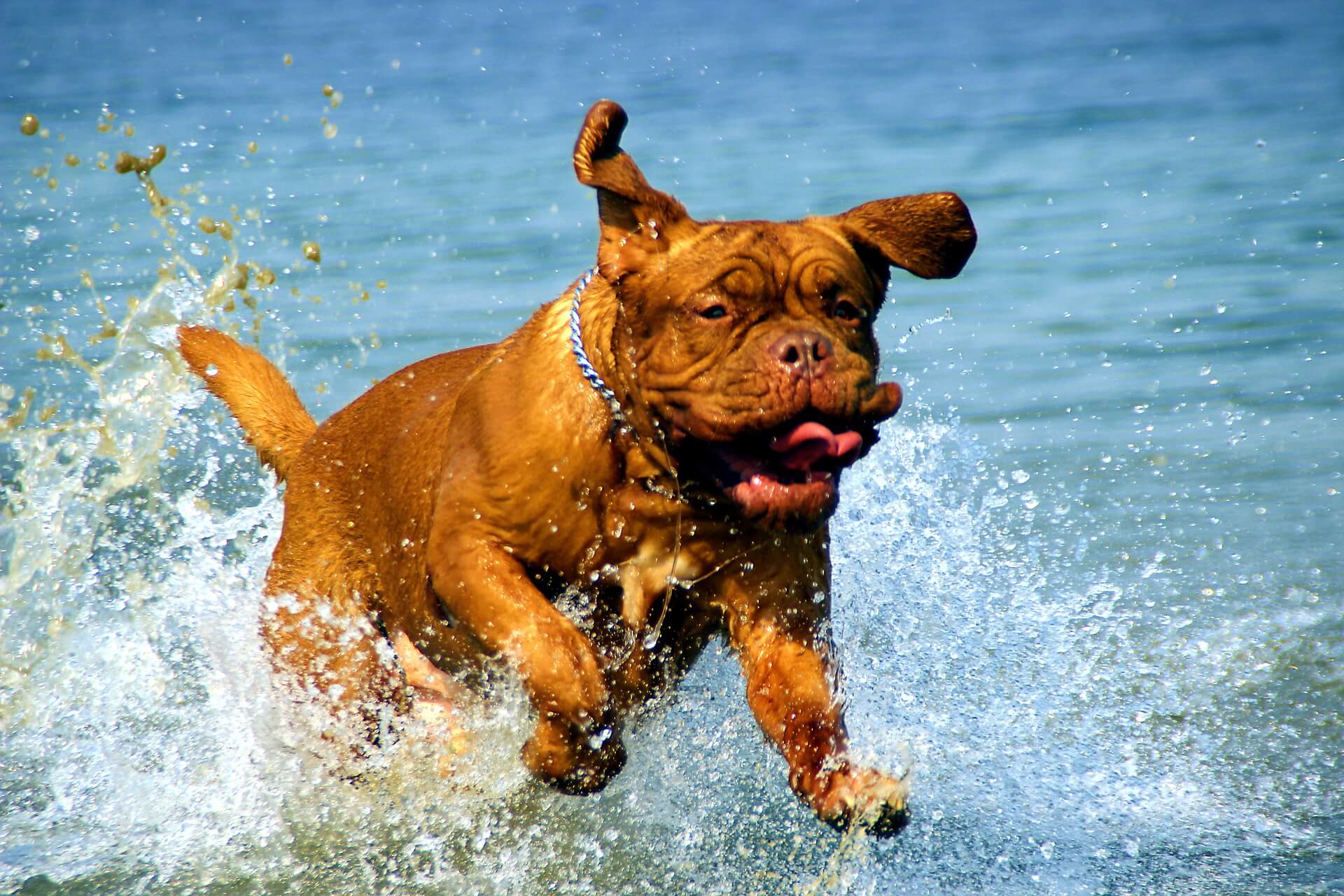
Socialization
Because these dogs were bred to be guardians they need proper socialization from the start if you want to secure a well-behaved dog. Although it shouldn't be aggressive, this dog breed is not best suited for inexperienced owners, but with the proper guideline and the right socialization, every owner can raise this dog to be a good one.
Expose your dog to many different sights, sounds, and people when he is a puppy so he can experience many different situations and get used to them.
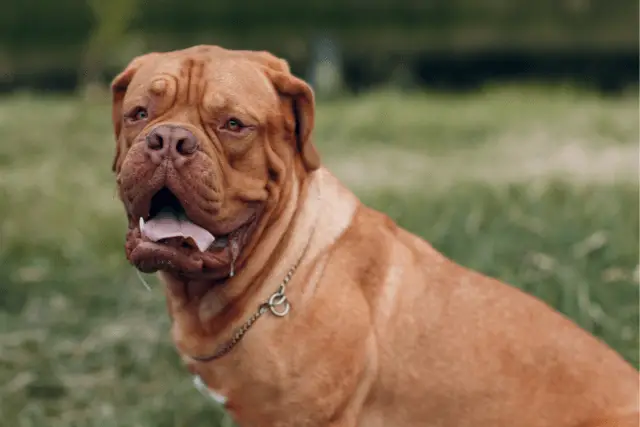
French Mastiff and kids
This is a family dog that loves family members and especially kids. They will be very loving and protective of them, but because of their massive size, you should always supervise their play so the dog wouldn't accidentally knock over the child. Also, you need to teach your kids how to properly approach and play with the dog if you don't want some unwanted behavior during playtime.
Dogue de Bordeaux and other animals
They can get along excellently with other dogs and animals if they are raised properly. They tend to be dominant, but with the right training, they will get along well with everybody, especially with other animals if they are raised with them together from the puppy age.
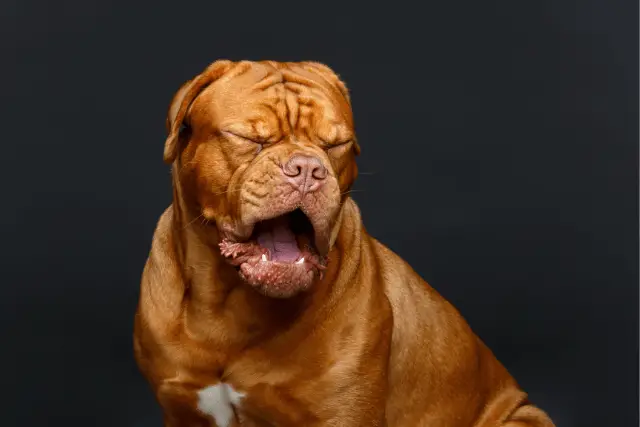
Health problems
All large dog breeds have a short lifespan, but Dogue de Bordeaux has especially small – 5-8 years. They are affected by many health problems that every owner and future owner should be aware of. The main problem with this breed is bloat. Every person owning this dog breed should know how to recognize signs of bloat and what actions to take to help their dog.
Other problems that can occur are
- heart disease,
- cancer,
- epilepsy,
- orthopedic issues.
The best thing you can do to secure that you will get a healthy dog without inherited diseases is to purchase the dog from a reputable and official dog breeder. By doing so, you can be sure that you will get the healthiest dog possible. Good breeders regularly check their breeding dogs, and they will not mate them if there is a sign that the puppies can end up with some serious health problems.
To be sure that your dog is healthy, you can perform a few health tests: hip and elbow evaluation, shoulder evaluation, and cardiac exam.
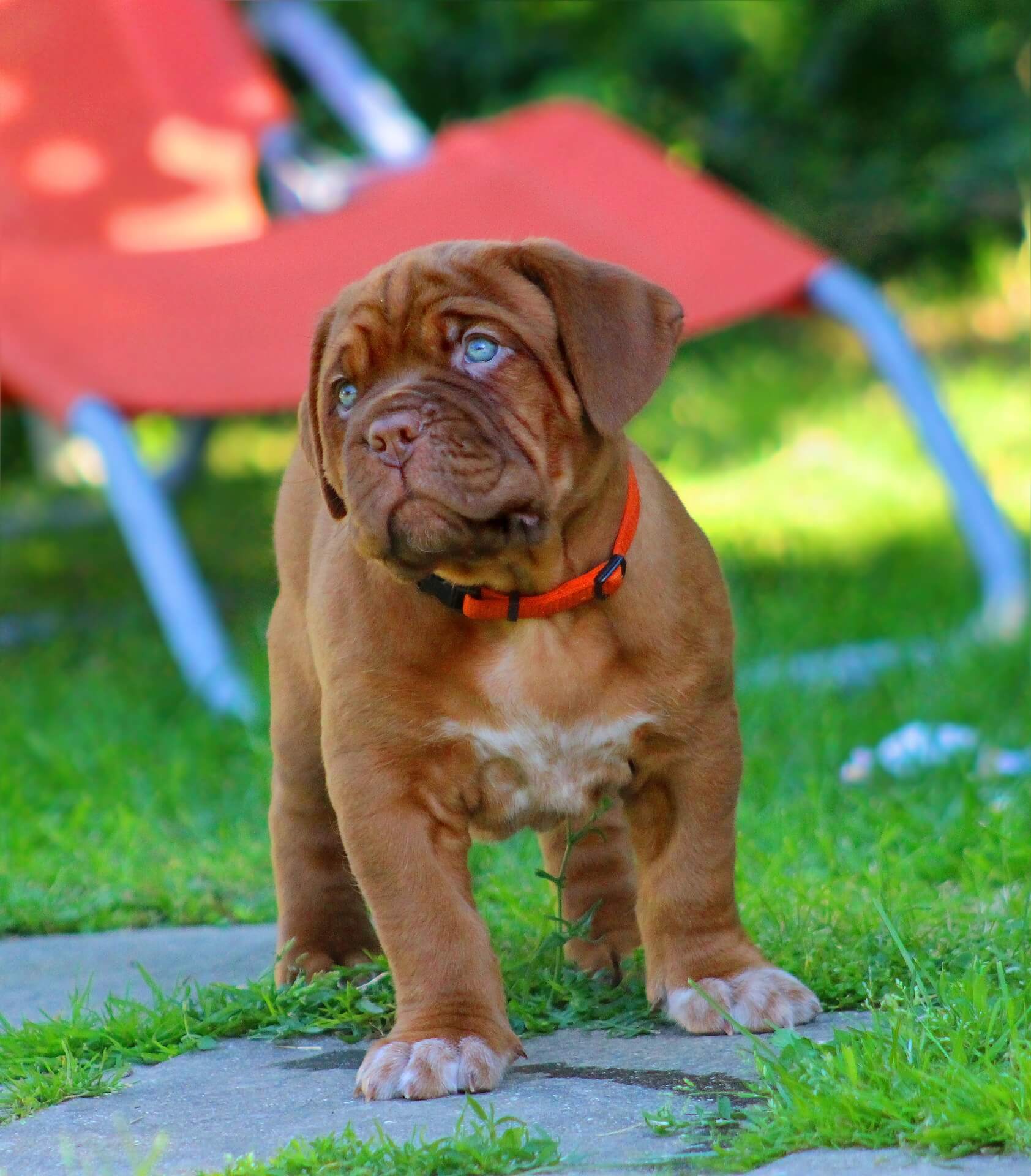
Dogue de Bordeaux breeders
Dogue de Bordeaux is a great and devoted dog with whom you can be sure that you will enjoy every minute of the day, but before you start contacting French Mastiff breeders, be sure that this is the right dog breed for you and your lifestyle. Take your time and find everything there is about this dog. Never buy a puppy from an irresponsible or puppy mill breeder.
These dogs are known to have some serious health problems, and by purchasing a puppy from a bad breeder, there is a high risk that your dog will develop health problems later in life. When talking to the breeder, always ask them to show you papers that prove they are a member of the national cynological association. To be sure you are talking to the official and responsible Dogue de Bordeaux breeder, we suggest using the World Dog Finder website or contacting the cynological associations of your country.
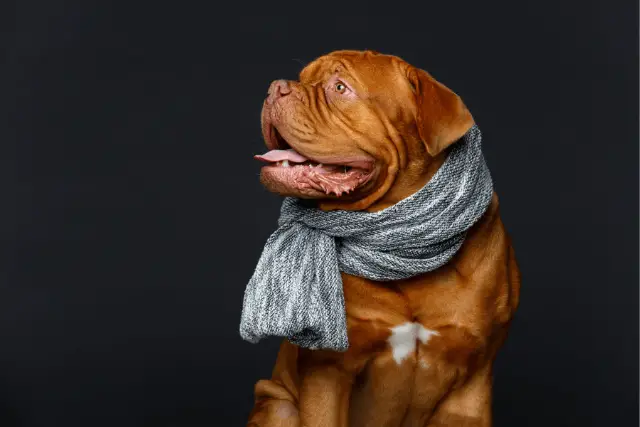
When you bring your new puppy home, start with the training and socialization immediately and devote your time to your dog. By doing so, you can be sure that your dog will develop into a well-behaved family member whom you can trust in any situation.
SEARCH DOGUE DE BORDEAUX BREEDERS
World Dog Finder team

Updated at31.08.2023.
Breed History
French Mastiff was known in France as early as the 14th century in the southern region around Bordeaux. This dog is one of the most ancient French dog breeds. Tale says that the Dogue's ancestors were used as war dogs and gladiators for fighting with other dogs and wild beasts in the arena. For centuries this dog came in two variants – Doguin – the smaller version that disappeared after the 1700s and left a slightly larger version of the breed as we know it today.
When they stopped being used for fighting purposes, they found a job as hunters and guardians. By the 1700s, these dogs were used as guardians for nobility estates. Guarding ended with the French Revolution as the dog masters were sent to prison and the guillotine. After this dog breed survived the bloodshed, they started to work as livestock droves, and at that point, people called them “Butcher’s Dogs.”
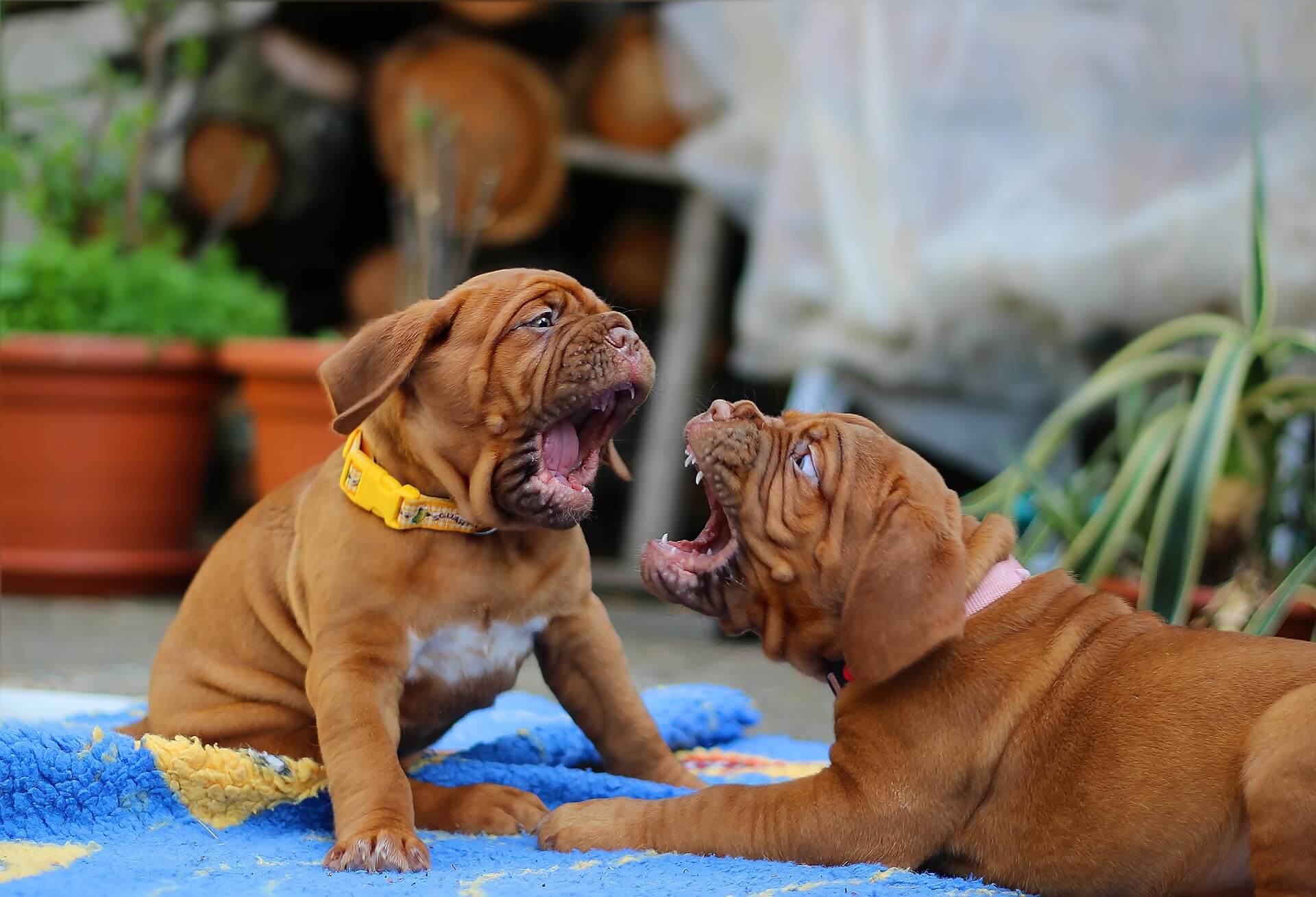
The first dogs were exhibited in 1863 in France, and at that point, they gained popularity in France and other countries worldwide. The Kennel Club officially recognized this dog breed in 1997 but didn't accept the interim breed standard until 2001.
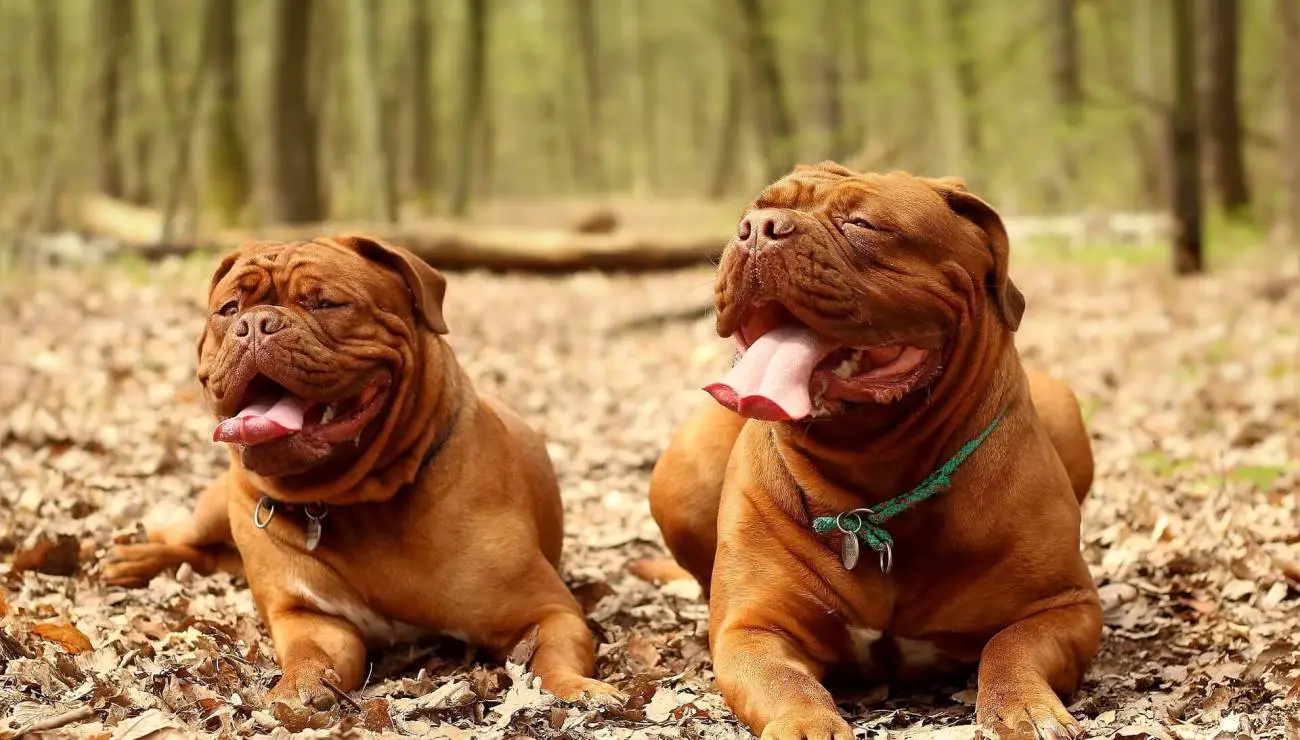
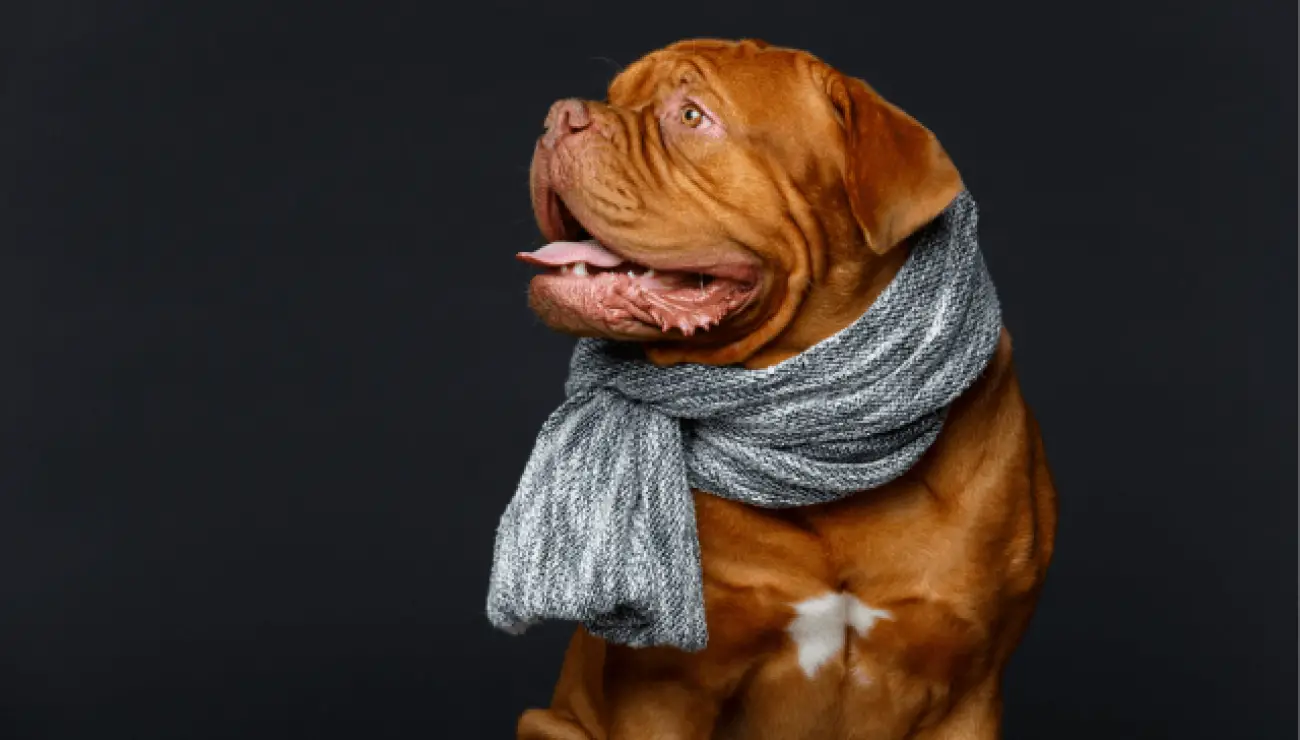
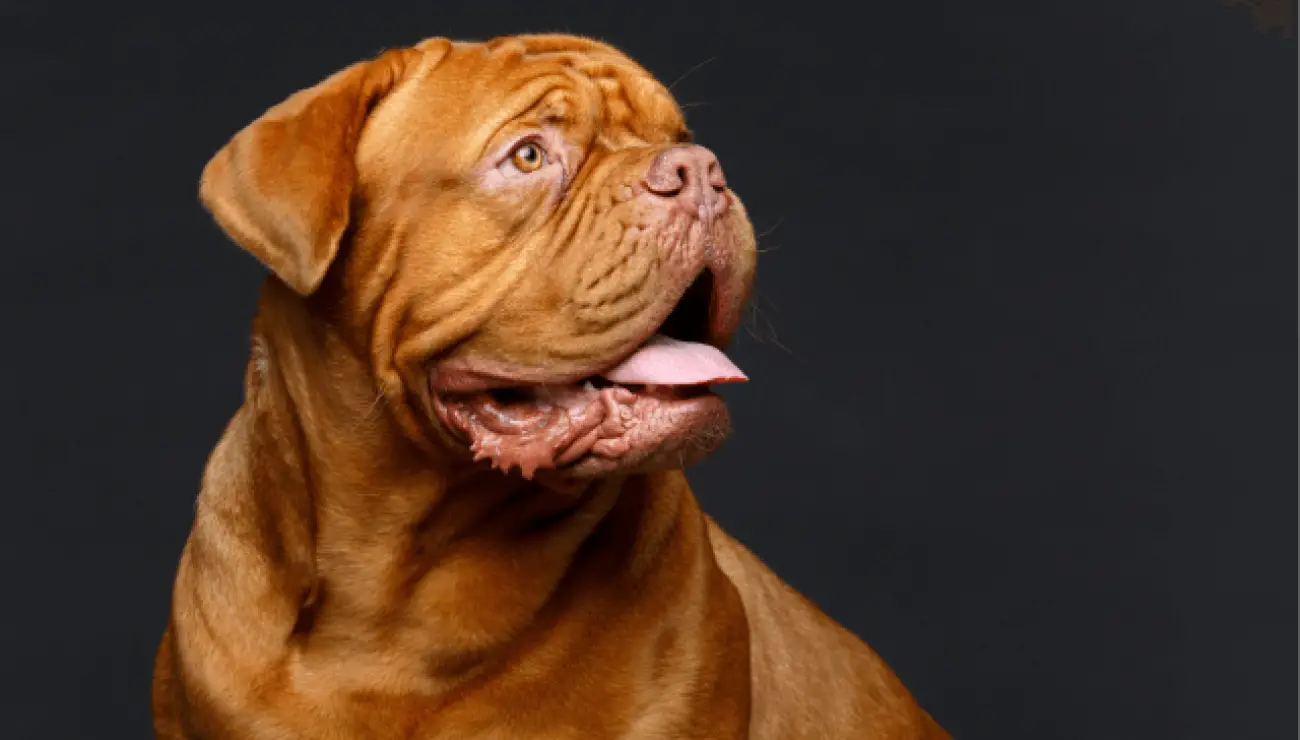
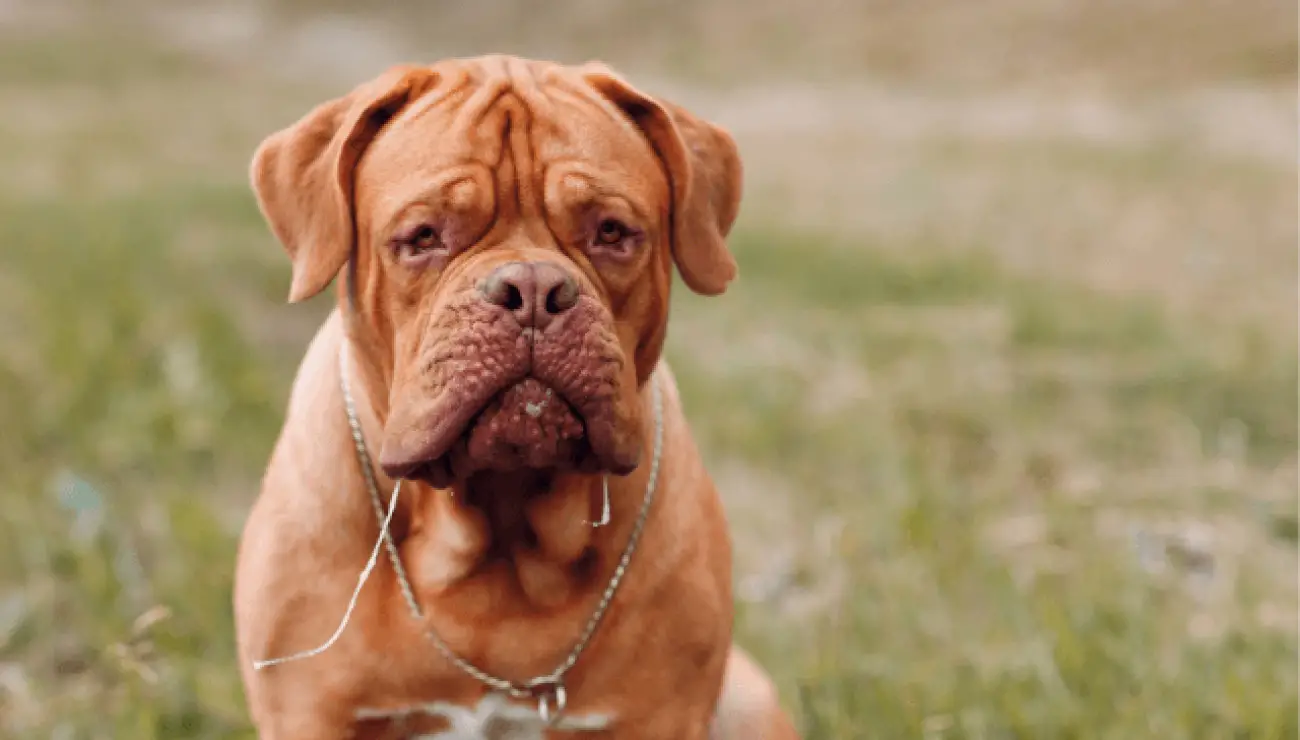
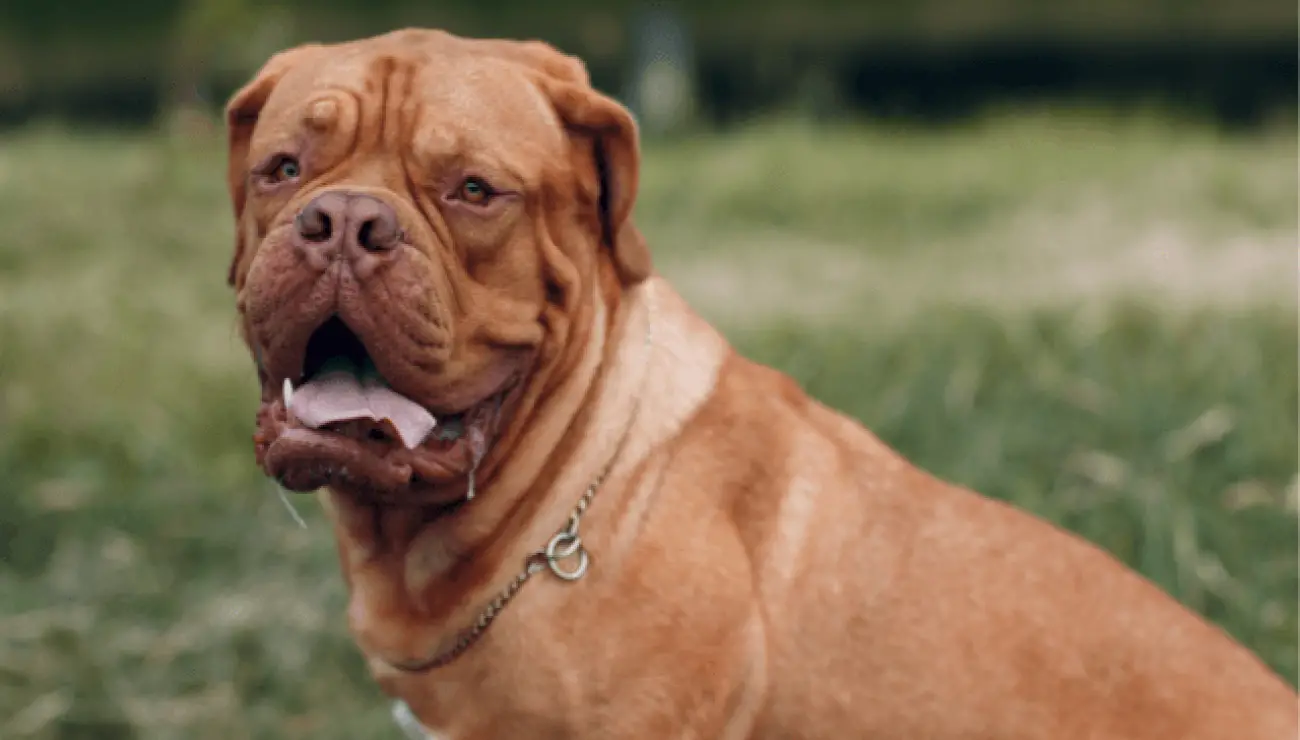
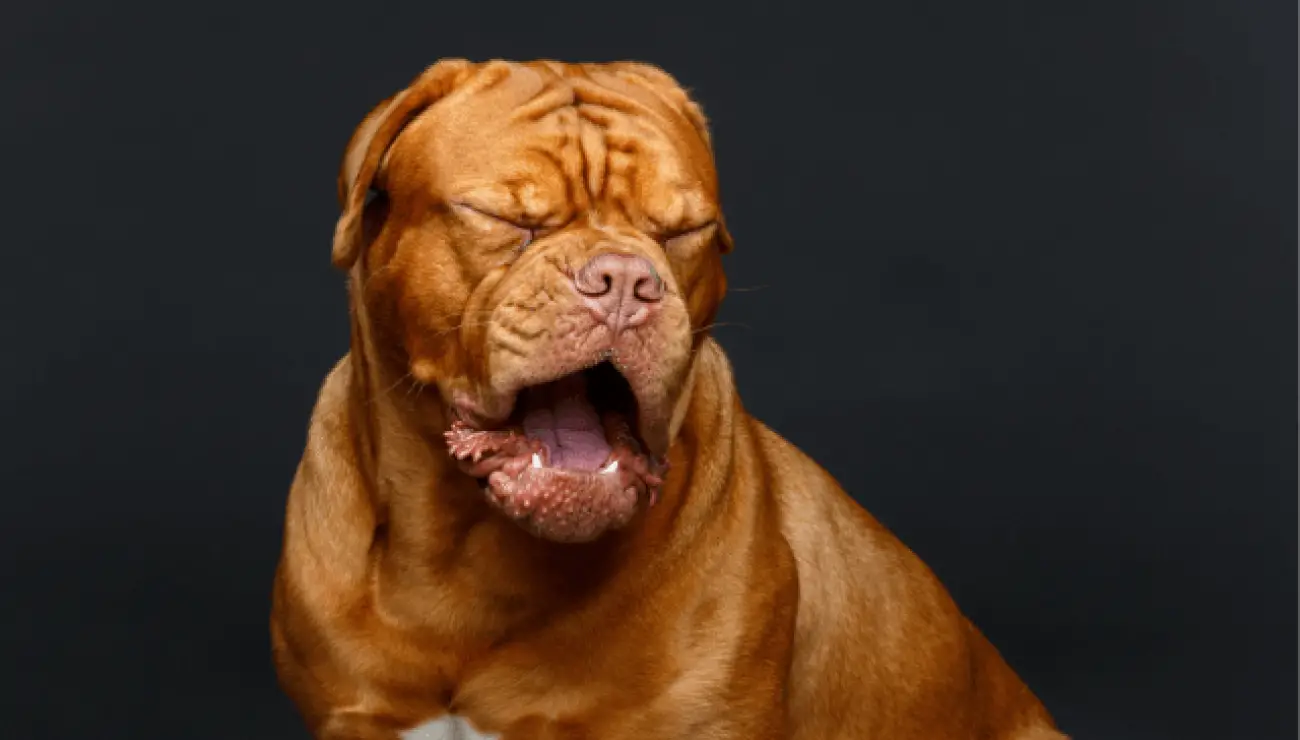
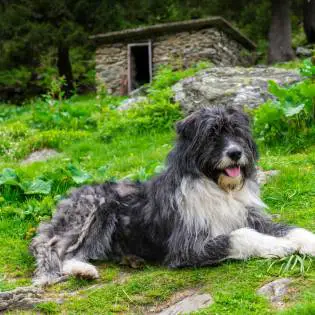

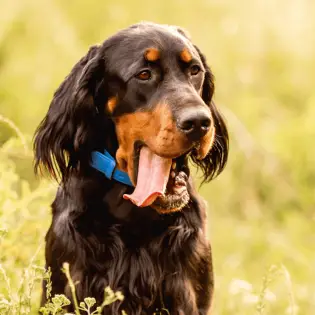
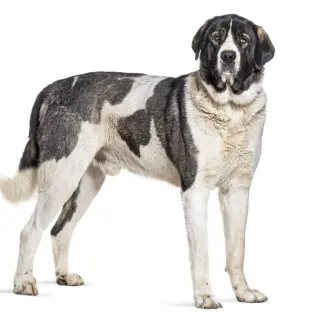
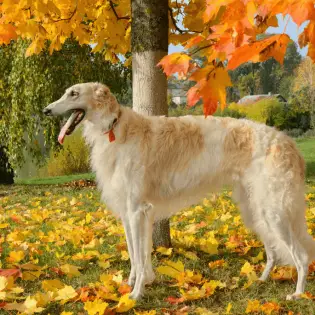
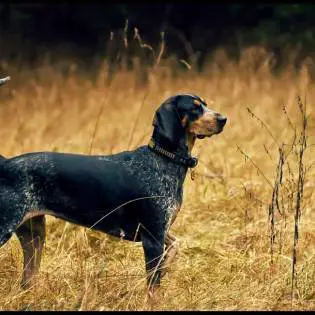
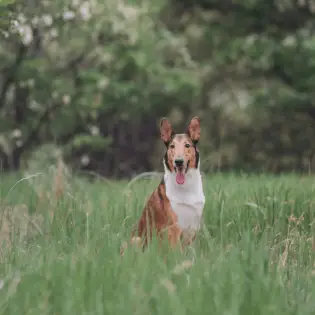
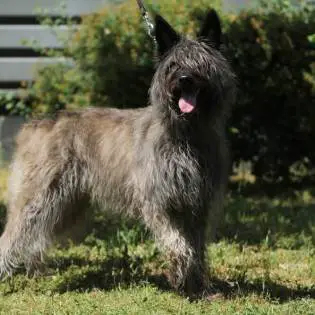
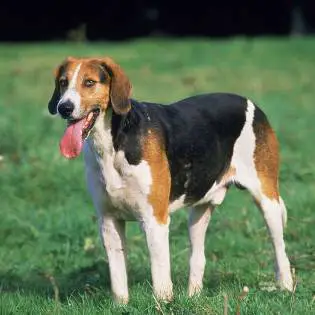
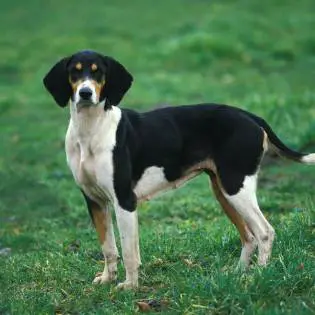

Share